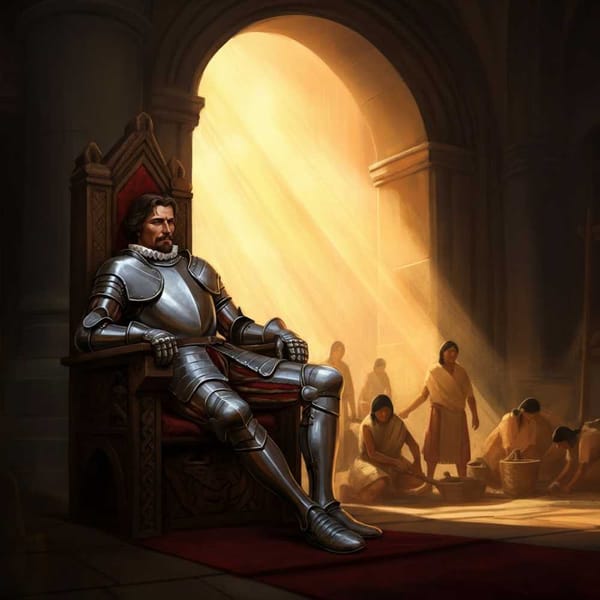Efrain Huerta, also known as the Great Crocodile
One of Efraín Huerta's greatest contributions is the "poem-meets-poem", a genre that he invented and baptized as such and of which he used to say: "Each poem is a world. A world different from ours."

Efrain Huerta was born more than 100 years ago on June 18, 1914, in Guanajuato. After attending primary and secondary school in León and Querétaro, Huerta moved to the capital. There he studied high school and the first years of law school, which he abandoned to devote himself to journalism and literature.
He worked in national newspapers and magazines, besides being an outstanding film critic. His film columns appeared in several magazines between 1938 and 1956. Efrain Huerta, the "crocodile", the activist and poet, published for forty years the verses that any Mexican would have wanted to say in his nights of reflection.
"I am the invisible cry of thousands of men." Efrain Huerta
Among his lines, discrimination, hatred, repudiation, and some half-alive hope can be seen; "the hoarse misery, / the gray melancholy, / the annoyance made flesh...". Efrain Huerta was an idealist, an intellectual, and a teacher. Along with Octavio Paz, Rafael Solana, and other artists of the time, he belonged to Taller magazine.
His book Absoluto amor ( Absolute love, 1935) was the first of more than fifteen books published up to 1980, in 1945 he was awarded the Palmas Académicas in France, and in Mexico the National Poetry Prize in 1976. Efrain Huerta died at the age of 67 on February 3, 1982, in Mexico City.
Efrain Huerta, also known as the Great Crocodile
From a lagoon, two bulging eyes peek out and sail delicately to the shore. As we approach, we realize that it is a creature with large jaws that effortlessly uses its amphibian skills to get out of the water and continue on its way. Its hard, greenish-skinned tail sways with lethargic movements. His footsteps are silent and head towards a desk where he sits down and delivers some verses to us. He is Efrain Huerta, also known as the Great Crocodile.
Efrain Huerta was born more than 100 years ago in Silao, Guanajuato, and it was not until some time later that he earned his nickname as the founder of "el cocodrilismo" a "lyrical and social school that in many ways is opposed to existentialism [...] an extraordinary school of optimism and joy".
This description works very well for Efrain's vast work, which seems to correspond to a man who lived for several centuries, although he only stayed with us for 67 years. His work is made up of poems, articles, reviews, prologues, stories, and even corridors. His production is not yet one hundred percent collected, because every week a poem with the signature of this author appears somewhere, in a drawer, in a corner, or in a little box that has not been opened for a long time.
As a poet, his so-called Poemínimos are well known, which as their name indicates are small works where word games and language tricks are used to relate historical, erotic, alcoholic, or beautiful and apparent everyday trifles. In the rest of his poetry it is remarkable how he integrates Mexico City and its urban culture, as in the poems Juárez-Loreto, Afrodita Morris, and Meditación y delirio en el Metro where he verses:
"Today I woke up and walked thinking it over; I suffered on Route 1 during Chapultepec-Insurgentes, Insurgentes-Salto del Agua, without finding anyone resembling the god of enigmas."
On the other hand, Efrain was a great film critic. He wrote -sometimes using pseudonyms- from 1938 to 1956 columns such as Cinema Reporter, Radar Fílmico, or Closeup de Nuestro Cine, to name a few, since as with his poems, there is still more than one researcher sweating to collect as many of his film reviews, critiques and praise as possible.
These reviews were neutral and focused exclusively on the mastery or poor achievement of the films, as Huerta did not let himself be carried away by the big names to focus his texts. For example, he stated things like: "Emilio Fernández, like the comedian we all know, is going to be liquidated by his scriptwriters and dialogue writers", or, in another way:
"We send our warmest congratulations to Luis Buñuel and his great film, to the producers, authors, interpreters, cameraman, set designer, and musicians of Los olvidados". He also accompanied his review of Emilio Fernández's Enamorada, curiously, with a corrido he composed based on the film.
As a child, Huerta worked selling newspapers and, at some point, thought about becoming a professional soccer player.
If there was something Efrain loved as much as cinema, it was politics. He spent much of his life supporting social causes and denouncing the injustices committed in the turbulent political and cultural life of Mexico during those years. Together with José Revueltas, he belonged to the Mexican Communist Party from which they were expelled. The cause? That is known only to his closest friends.
Efrain Huerta was also a friend of Octavio Paz with whom he has more in common than just being born in 1914. Both were collaborators of the Taller magazine, famous for promoting emerging literature. They both studied at the Faculty of Philosophy and Letters of Mexico's highest university. And now their names are also engraved in gold letters on the wall in honor of the Legislative Assembly of Mexico City. And yes, together with José Revueltas, always next to him.
In his student years, it was common to find Efrain Huerta reciting his poetry in the corridors of the Law School.
As for awards, Efrain received the Xavier Villaurrutia Award, the National Literature Award, the Academic Palms from the French government, the National Journalism Award presented by Jose Lopez Portillo, and his home state honored him by creating the Efrain Huerta National Poetry Award. He traveled to the Soviet Union, Czechoslovakia, Poland, Austria, Switzerland, and countless other places.
On May 24, 1973, he was admitted to the Oncology Hospital, where Dr. Roberto Garza performed a laryngectomy. He lost the technical faculty of speech, but never his voice, and it was in 1982 when he physically departed, although he never really left us. He will always be remembered as the writer who sat down to observe, interpret, and then, with overwhelming vigor, express his love. In Efrain Huerta's own words, "I always loved with the silent fury of a lethargic crocodile."
Why was Efrain Huerta called the crocodile?
There is no precise origin, some say that being a crocodile had to do with imitating the attitude of the old saurian: to wrap himself in hard skin and remain impassive in the vicious atmospheres of the crushing daily life; others look for a psychoanalytical sense and want to see in the crocodile something like the sign of the reptile that lives in the depths of our minds.
Some say that Ephraim, then, simply and simply physically resembled crocodiles and that this is where the joke came from. Be that as it may, he was the great crocodile and with a group of his friends with whom he had coffee or a drink, a good time, and a good time, he founded crocodilism.
Sources: Sandra Sanabria and Luis Perea via Radio UNAM, Gaceta 22, El Siglo de Torreon.




